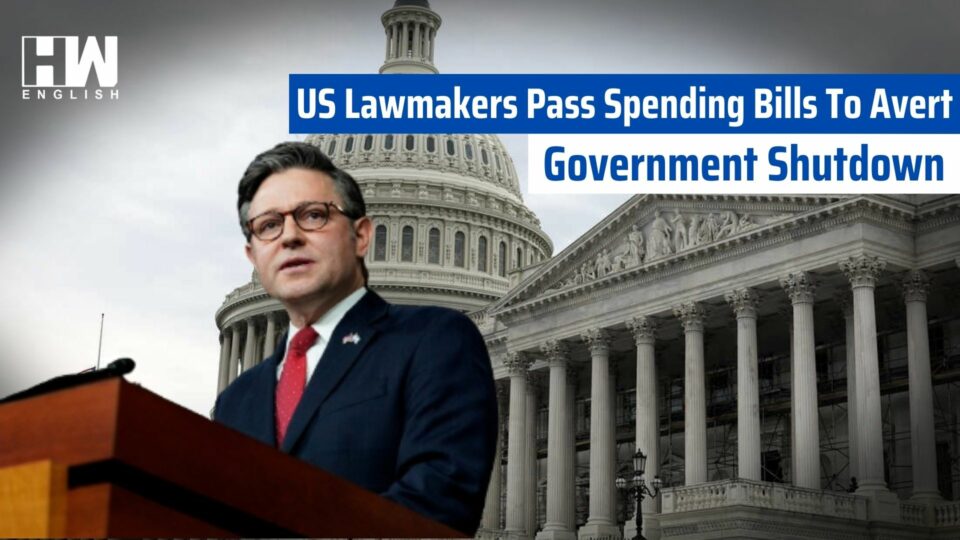In a last-minute move, US lawmakers passed a bipartisan $459 billion spending package just before Friday’s midnight deadline, averting a partial government shutdown.
Also Read:Canada: Video Of Khalistani Terrorist Nijjar’s Killing Surfaces
The compromise legislation, which funds nearly 30% of federal operations through September, cleared the Senate in a 75-22 vote following hours of intense debate. It had faced opposition from some Republican senators who argued it did not go far enough in curbing federal spending and tightening immigration enforcement.
House and Senate appropriators negotiated the six spending bills after President Joe Biden hosted congressional leaders at the White House earlier in the week to help break the impasse.
Failure to strike a deal would have forced around 20% of government departments and agencies, including those overseeing agriculture, transportation, and veterans affairs, to begin temporarily shuttering operations at 12:01 a.m. Saturday.
“Today, we got the first half of the job done – passing a serious bipartisan package to fund key parts of our government,” said Democratic Senator Patty Murray, who chairs the Appropriations Committee.
While averting an immediate crisis, the spending patch sets up more significant political battles ahead. Congress must still fund the Department of Homeland Security, which oversees immigration policy, by March 22nd. The always-contentious defence budget must also be decided by then.
With Republicans narrowly controlling the House and Democrats holding a razor-thin Senate majority, cooperation between the parties is essential to keep the government fully operational through the fiscal year ending September 30th.
The reprieve comes after a decade of relative funding stability following a 35-day partial shutdown in 2018-19, the longest in US history when Donald Trump fought Congress for border wall funding.
Negotiators will likely face intense pressure from their parties’ bases heading into the 2024 elections. Republicans demand stricter border security and immigration limits, while Democrats prioritize domestic spending on areas like healthcare and education.
The recurring funding clashes and the threat of government shutdowns underscore Washington’s entrenched partisan divisions and the difficulties in achieving lasting fiscal agreements in an era of perpetual campaigning.
Political brinkmanship over spending priorities could intensify in the coming months as Biden officially launches his re-election bid and Republicans vie for their party’s presidential nomination.
As an independent media platform, we do not take advertisements from governments and corporate houses. It is you, our readers, who have supported us on our journey to do honest and unbiased journalism. Please contribute, so that we can continue to do the same in future.

